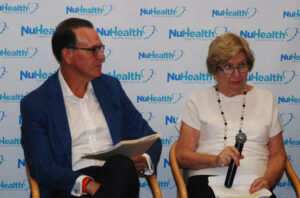By Kristan Bravo
The NCAA Men’s Division I Basketball Tournament has been held every year since 1939, and the women’s tournament since 1982. This year, neither competition took place.
The coronavirus pandemic forced the cancelation of March Madness and has left the National Collegiate Athletic Association with decisions to make about future playing eligibility for winter athletes.
The Hofstra University men’s basketball team made the March Madness tournament for the first time since 2001, only to have the competition canceled because of the coronavirus. Many Division I winter athletes are wondering now about whether they will be granted additional future eligibility to play because of a lost season.
The Hofstra University men’s basketball team secured the Colonial Athletic Association title before conference tournaments were canceled around the country. It was the squad’s first conference championship — and first automatic bid to the NCAA tournament — since 2001.
Head coach Joe Mihalich said his players were “devastated and gutted” to learn the NCAA tournament was canceled.
“It was like somebody ripped your heart out,” he noted.
Mihalich’s team included three seniors — Desure Buie, Eli Pemberton and Connor Klementowicz.
On March 13, a day after the NCAA announced cancelations, the Division I Council Coordination Committee released a statement saying, “Eligibility relief is appropriate for all Division I student-athletes who participated in spring sports.”
That is, the spring season would not count against their eligibility to play college sports — athletes receive four years of eligibility.
Spring sports had barely begun before they were suspended. Division I winter athletes, including men’s and women’s basketball players, however, were left waiting on an answer whether their seasons would count toward their eligibility.
Senior Hofstra men’s basketball guard Connor Klementowicz said he would “definitely agree” if the NCAA were to grant additional eligibility to winter athletes.
“We worked all season to play in the tournament, and we didn’t get the chance to do that,” Klementowicz said. “I love Hofstra, so if they wanted me to come back, I would definitely consider it.”
Klementowicz said he believes all winter athletes, regardless of whether they made the post-season, should receive additional eligibility. In basketball, he said teams in the Big East Conference were unable to finish their seasons, leaving the unknown of which schools would have automatically qualified for March Madness.
The St. John’s men’s basketball squad ended its season on March 12 at halftime of the Big East quarterfinal with a 38–35 lead over Creighton. The Big East made the decision at halftime to suspend play after many other major college basketball conferences had already done so. The decision left no Big East champion.
Mike Farrelly, Hofstra’s associate men’s basketball coach, said he does not see how the NCAA could grant the additional year of eligibility because so many other winter teams had already completed their seasons.
“I wish there was something that could be done for these kids,” Farrelly said. “I don’t see how the NCAA would be able to navigate it.”
Farrelly raised several potential problems that the NCAA would face in granting an additional year of eligibility for winter athletes. Among them is the limited number of athletic scholarships that schools can give per sport each season.
According to the NCAA, men’s basketball, for example, can only offer 15 athletic scholarships per season. If it granted additional eligibility to winter athletes, that could increase the pool of players on any team, and the NCAA would potentially be forced to expand the number of athletic scholarships offered. And the NCAA would have to decide which winter athletes qualified for the additional year and which did not.
Farrelly said he wished the NCAA would have postponed tournament instead of canceling it.
Mihalich echoed that sentiment, saying the NCAA “100 percent” should have postponed March Madness. But with cancelations being final, the league turns to its council members to decide next steps.
St. John’s Athletics Director Michael Cragg said it was “great” that the NCAA quickly decided on eligibility for spring athletes. The details of how that will play out remain to be seen.
“What that [process] exactly looks like, we have no idea at this point,” Cragg said. “But we are all in it together.”
According to a league press release, the NCAA’s Division I Council will vote on eligibility for all student-athletes who were impacted by COVID-19 on March 30.









